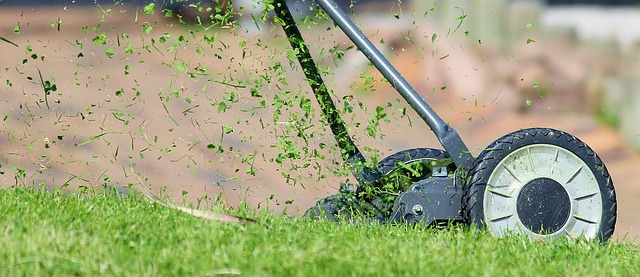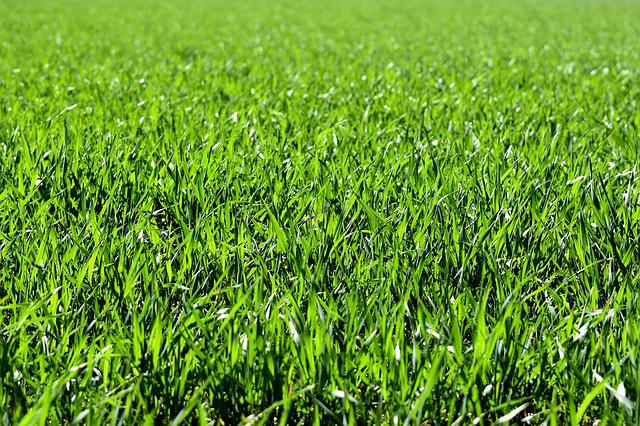
To bag or not to bag, that is the question when it comes to your lawn clippings in your yard. You may not be sure if you should be bagging clippings or leaving clippings lying around.
If you mow frequently, those grass clippings can add up. When you want your lawn to have that curb appeal, those grass clippings can become more of an issue if you want a healthy lawn and one that looks good.
The lawn care pros at FortSmith Landscaping take a closer look at the bagging grass clippings debate so you can decide if you want to leave grass clippings or bag lawn clippings.
Let’s get started.
Benefits Of Bagging Grass Clippings
When you start thinking about whether you should be bagging your grass clippings after you mow your lawn, you should first consider the benefits because there are quite a few.
It’s All About the Look
When you look at your cut grass, you want to look at a clean lawn, not a bunch of yard clippings that are doing zero for your curb appeal. After your regular mowing, you’ll want to bag your grass clippings if you want your lawn to look in tip-top shape.
If your yard is growing too much, mowing may leave behind yard debris scattered around. It makes your house look even less attractive when grass clippings dry up and turn brown. Whether the mower leaves grass clumps on the ground or leaves it empty, get ready for some cleaning.
Create Your Own Natural Fertilizer
The mixture of grass clippings in yard waste containers and compost bins will help your plants grow healthy in their garden as well as within their environment. Before putting the lawn mower in motion, attach the bag to the lawn mowing machine. Providing proper lawn care means the soil will remain stable and can be disposed of efficiently and effectively.
Fight the Fungus
Some grass clippings, particularly shorter ones, are very susceptible to moisture. It may provide breeding grounds for other diseases. By securing your grass clippings in a bag, the bacteria can be removed from their environment and prevent their growth.

When Should You Bag Your Grass Clippings?
The only time it’s better to bag grass clippings is when your grass is extremely overgrown, meaning the blades are several inches tall. It’s best to still remove only one-third of the grass height per mowing session, gradually reducing the grass to the appropriate height. Rake up excessively long clippings and bag them so that they don’t mat on the surface of your lawn.
What To Do with Grass Clippings After Bagging?
After you bag your grass clippings, you can choose to compose them. Grass clippings have high levels of nitrogen, making them a great addition to your compost pile or compost bin. Composting is an environmentally friendly choice and a much better choice compared to increasing the junk in landfills.
When you add them to your compost pile as a nitrogen booster, they decompose faster with other compost materials, such as leaves, coffee grounds, and kitchen waste, for two weeks to four months. Keep the materials damp and turn them regularly to speed up the decomposition process. The compost pile is ready when it smells earthy and crumbles like rich dirt between your fingers.
You can also ask your neighbors and see if they can put your grass clippings to good use. You could see if your local recycling pickup will take the clippings as well so you’re not left with bags in your yard.
What Happens if You Don’t Bag Grass Clippings?
If you decide that removing grass clippings and bagging them is not for you, the grass will remain and can cause some lawn damage. If you don’t mow frequently, excessive grass clumps can significantly contribute to the thick matting of your lawn. You may even have some discoloration.
Excess grass clumps can also kill your lawn. This may mean more yard work and that you have to mow more than once a week during peak season so that you’re only getting rid of 1/3 of the grass blade every time you mow. This can get tedious, but your lawn will look healthier in the long run.
If I Don’t Bag My Grass Clippings, Should I Mulch?
The big question many people have if they decide bagging lawn clippings is not for them is if they should mulch. If you’re thinking about going the mulch route, check out these benefits:
Benefits Of Mulching
Help save the world
In 2018, EPA researchers estimated that more than 10 million tons of lawn clippings are deposited annually in landfills. Mulching your lawn can play an important role because mulch helps reduce landfill waste and contaminants. Polluting our environment is really a problem, as landfills are draining away everything that is needed.
Create a Natural Fertilizer
The grass is rich in nitrogen and sodium and potassium. Nitrogen is particularly significant due to the rapid healthy growth of the plant and its green hue. By mulching, we add essential nutrients to the soil. This reintroduction will reduce the human use of fertilizers. Proper lawn care practices reduce the need for hazardous chemicals by providing nutrients to help your grass grow better.
As grass clippings decompose, they release essential nutrients back into the soil. This can satisfy 25% or more of the lawn’s fertilizer needs.
More money in your pocket
If you decide to mulch, you can save money. With mulching, you don’t have to worry about spending money to find a place to dump it or worry about the cost of the bags.
Less work for you
When you mulch, you’re also saving time when it comes to yard work. When you’re saving time and money, it’s a win-win for everyone. When grass is mulched, it kills two birds with one stone.
Provides Hydration
Grass clippings are 80% water and decompose faster without contributing to thatch buildup. With more organic matter, grassroots stay cool and moist with less soil evaporation. This helps to conserve water and requires less frequent irrigation.
Helps with Weed Control
The layer of decomposing grass clippings helps suppress weed growth.
Is Mulching or Bagging Better for Your Lawn?
When you look at the benefits of bagging your grass clippings versus the benefits of mulching, you’ll notice that leaving grass clippings in place is an easy way to recycle nutrients back into your lawn. They encourage earthworms and microorganisms that can break down in just a few weeks. As long as you mow regularly and leave clippings no more than 1 inch long, you can safely let them lie where they fall on the grass.
Are All Lawn Mowers the Same Whether I Decide to Mulch or Bag Yard Clippings?
A side-discharge mower and mulching mower leave grass clippings behind. A mulching blade chops up clippings into smaller pieces, so they decompose rapidly and don’t clump. This is a good piece of mulching equipment to have. If you use a side-discharge mower, you might want to do your own mulching by running over your grass clippings a few times.
When you mow frequently, a mulching mower can chop up those grass clippings so you don’t even allow them to be seen. If you’re using a bagging mower, it’s more labor-intensive. You’ll have to carry it, bag it, and dump it while you mow.
Are You Looking for a Lawn Care Company to Take Care of Your Lawn?
When it comes to lawns, Fort Smith Landscaping is a lawn care company you can trust. We can take care of mowing your lawn and any other yard work you may need.
We offer a wide variety of lawn services to make your lawn the envy of the neighborhood. Call us today at (919) 228-8495 or reach out to us online for more information on how we can help.
